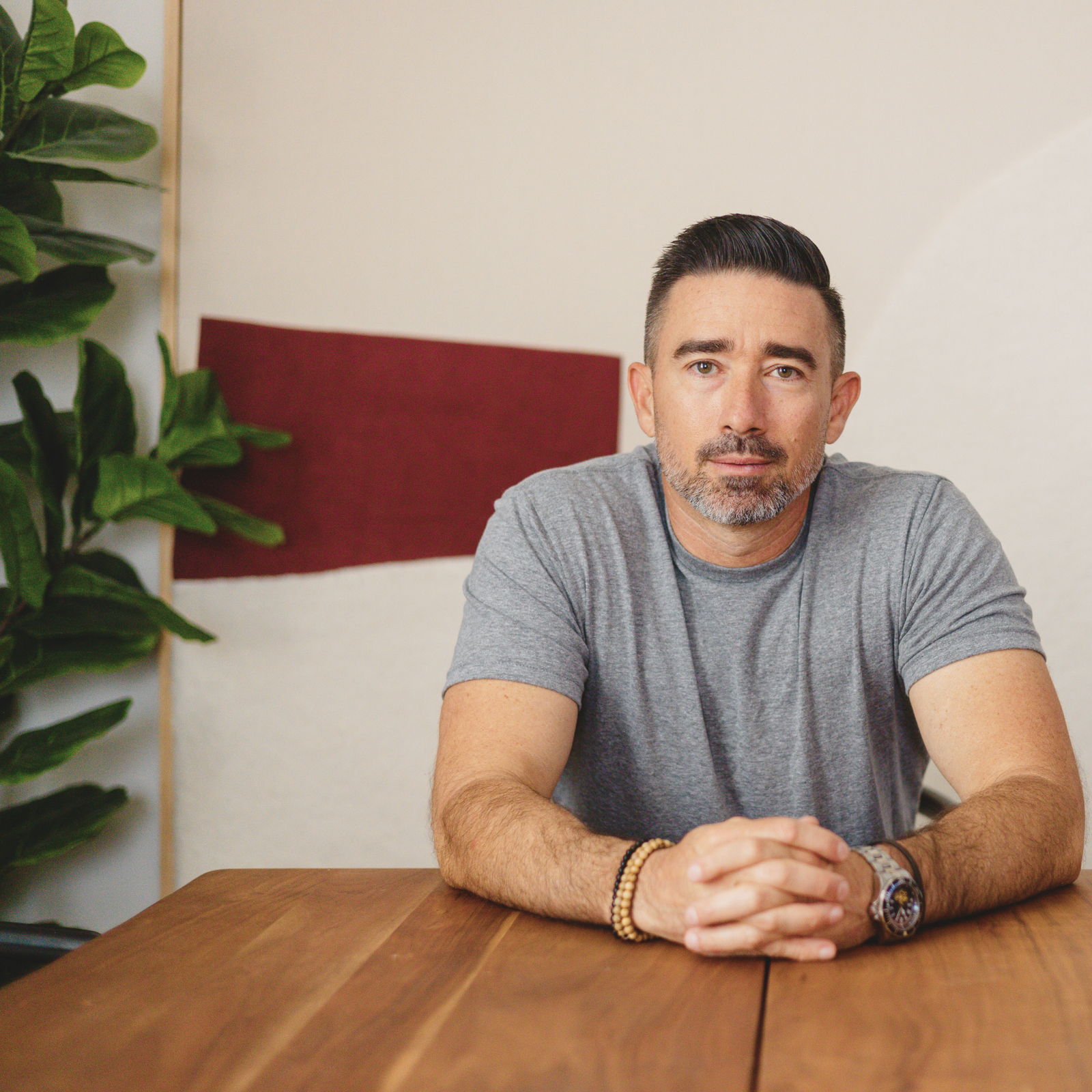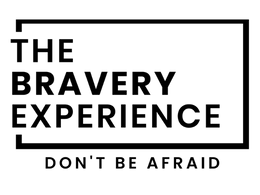Courage To Push Forward

Link to BRAINZ Magazine article.
Courage To Push Forward – Exclusive Interview With Jay Thalman
The Bravery Experience is a coaching business on a mission to help people through the rough patches in life derived from grief, anger, and relationship issues. After a poor decision in business, the founder, Jay Thalman, went through his own rough patch of depression and anxiety, and after four years of working through various strategies, he found his new stride. But just when everything seemed back on track, marriage issues surfaced, sending him into a tailspin.
This time was different as it involved his wife of 14 years, two daughters, and family. A lot spiraled out of control quickly. Days before his 40th birthday, his wife walked out, and that’s when he lost himself. Anger, drinking, resentment, and self-doubt issues controlled him. From the outside he was happy, but he was dying inside.
Thought he was worth more in insurance money than what he had in his bank account. One morning, alone on the floor crying out for help after a panic attack, scared and confused, he made a critical decision to change his mindset and never look back. And that’s exactly what he did.
The Bravery Experience was built as a response to his personal journey of finding the courage to break through the pain, the demons, and self-doubt issues and rebuild from ground zero at the age of 40. They say real humans help each other by being vulnerable and transparent through sharing their own mistakes to help others, and Jay does that.
The business motto is simple, Don’t Be Afraid. Jay got vulnerable when sharing how his default personality is insecure. It’s better today, but he still struggles at times. He was never good in school, bullied as a teen, and often felt he lacked something. All this made him feel disqualified and led to him beating himself up on past mistakes and doubting his true talents. Now, it’s an internal game for him, and he lives with the intention to serve and help others out of the mental health challenges and pain he experienced over 10 years. Don’t Be Afraid is having the courage to face our fears, worries, anxieties, and the noise life throws at you and learning what it means to truly forgive ourselves.
If he could go back in time, he wouldn’t change anything, and Jay and his wife eventually reconciled. He is an energetic and passionate individual focused on reducing pain in the world by helping people find a vision for their lives.
What concerns are you seeing in the personal development growth space?
I think answering this question should start with a look at mental health, as it is a growing concern. Based on the latest Mental Health in America, 2023 report, over 50 million adults and 2.7 million youth suffer from mental illness, and the number of adults and youth not receiving help is staggering, over 55% in both categories. With this trend, the personal development and knowledge industries have grown substantially. The knowledge industry alone has surpassed the $1B/day mark because so many are searching for answers on their personal growth journey.
The issues I see in this space are wide-ranging and complex as it involves humans. Empowering people to realize that they determine the outcome of their lives isn’t easy, in fact, it can be overwhelming. So many people live with an old story on repeat and are unable to break away from it. The industry is full of solutions and methods and a lot of focus on toxic positivity, and many therapists and coaches lack true compassion. It’s just a job. With so many offerings and specific programs, like, ’In 90 days you will achieve this goal and be on your way to greatness,’ there are a lot of promises. There are several great marketers with a strong social presence and influence sells, but they lack people skills or real-world experience on the subjects they coach on. It’s about the money. This all produces false hope, confusion, and frustration for people looking for help and a general lack of confidence.
Another challenge is the overlap between therapists and coaches. Several of my clients continue to see their therapist in addition to my coaching. In some scenarios, this presents challenges as a coach, but it can also be helpful. Therapists often dig into deep-rooted issues of one's past, and that can provide valuable clues into the puzzle. I’ve learned to look at it this way, though I have dealt with anxiety and depression, and understand losing yourself firsthand, have read the books, done the research, and have personally tested various methods that have worked and several that haven’t, for me, I’m not a licensed therapist. Both professionals play a critical role in the personal development space.
The last notable concern I would share is cost. Simply put a lot of people cannot afford to get help. For this reason, The Bravery Experience offers support to those who can’t afford it. We go through a different intake process where I hear about the issue and assess readiness for change. If accepted, I coach them once a week for 90 days, then we reevaluate. My mission in the very beginning was to help one person breakthrough, but after helping my first client find their path, I changed my mission to “help one more”. And that’s what I will continue to do until I can’t.
That said, there are great coaches and therapists out there. If you are in the market for a coach or therapist, take time to find the right fit before starting. Do consultation calls and ask a lot of questions. Look for an effective communicator who listens well and isn’t opinionated. Ask about their approach and personal growth achievements, because you will want someone who has experience with the results you’re chasing.
How do you approach helping clients and what makes your approach unique?
The majority of my clients have experienced some level of loss that has led them down a road of anger, self-doubt, and acceptance issues, or lost their way and have no accountability for their future. They have similar challenges to what I overcame.
In the first 2-3 sessions, we walk through a series of questions and each session ends with homework. The initial meetings are designed to unpack the issues and goals and start to identify patterns that we need to work on.
Patterns uncover parts of their story and limiting beliefs holding them back. Once we get through the initial sessions, we get to work on reframing the foundation.
I am committed to my client’s growth and overall well-being but realize I can’t help everyone. I’ve turned away clients because they weren’t ready for change. You must be ready and willing to put in the effort. Last year I worked with a client for three months, and on our 16th session, I parted ways. They were confused, but I shared examples of them not following through. Here’s the deal, my goal is to help clients achieve results and help them transform. What’s awesome about this story is that the client contacted me three months after that call. They said, “Our last call changed me. I needed that. I’ve been working on everything we discussed since that call and am doing really great. Thank you for doing that. I appreciate what you do!”. I genuinely want to help people because I know what it feels like to be stuck and lost. This isn’t about growing my bank account.
What would the Jay of today tell the Jay of 20 years ago?
- Don’t be afraid to fail - learn from it
- Have the courage to chase your dreams
- Don’t lose yourself in the day-to-day
- Chose your words wisely, and
- Spend time in your thoughts
There is a great book called The Top Five Regrets of the Dying and the number one regret was, “I wish I’d had the courage to live a life true to myself, not the life others expected of me”. When I think about this regret it leads me to self-reflection, am I fulfilling my dreams, if not, what do I need to change? My answer to that question now is generally, yes, I am fulfilled. Before hitting bottom six years ago, my response would have been, 100% no. I had my priorities wrong. Everything flows better when your frequency is in tune with your heart, mind, soul, and health.
Here in the United States, we get caught up in the live-to-work vs. work-to-live mentality. I’ve been in the business world for 25 years, and for a long time put my career first. My daughter and I went on a missions trip earlier this year, which reminded me about the real importance in this world, love. That might sound cliche or soft, and that’s okay. I think love is about an amazing journey with ups and down and being determined to enjoy the good times and push through the bad times. When we were off the grid, hours from anywhere, smiling, laughing, and having fun with people we couldn’t communicate with because of a language barrier, it was about the moment and realizing how much we all had in common. It wasn’t anything material, it was simply showing love and respect to each other.
Words, I can’t stress this enough, we must be careful how we talk to ourselves and others. Words are powerful, and they can create beliefs that become a story, and that story runs through our minds over and over again and eventually drives us. Words create an image that can be either positive or negative. I’ve seen it too many times to count, and being someone who once had a lot of self-doubts, I understand the power of words and what they can do. So please be careful.
Spending time in your thoughts. So important. I practice two methods: 1) I let my mind run, and 2) I process any triggering thoughts. The first one is a process of not controlling your thoughts during a 10-20 minute meditation. The key here is to not think about “Why did I just think that, or where did that come from?”.The goal is to not give any negative thoughts attention at that moment. The second item is understanding events that trigger you and taking the time to properly process them. This provides insight into areas needing work and often things you need to eliminate. For instance, music can often be triggering because of the words. It brings back a memory that can lead you down a negative path. So self-awareness of your triggers is critical to personal growth.
What are your future plans for the bravery experience and how do you see yourself making a difference in the industry?
My audacious goal is to create a movement, one that is focused on “Don’t Be Afraid”, to not be afraid to take that first step towards change. My life mission is to help people overcome the fog and the pain and help them realize they are enough so they can find joy in life. We have some exciting things coming over the next 12 months on The Bravery Experience offerings to get people the help they need. That’s how I measure success, how many lives can we change? On the floor that morning in my darkest time, I not only made a commitment to myself to change but also committed to never stop helping others like some did for me when I needed it.


